STVFORUM | Social Truths through Documentaries
In recent years, both domestic and international documentaries have seen unprecedented enrichment and expansion in terms of subject matter and filming techniques. What are the standards for excellent documentaries? How do creators balance personal style with authenticity? How is the international documentary market evolving? On the afternoon of June 26, at STVFORUM of the 29th Shanghai TV Festival, the MasterClass for documentaries invited four renowned documentary professionals to discuss the current state of the industry and explore future trends. They were: Vikram Channa, Jury President of the Documentary category of Magnolia Awards, President of Warner Bros. Discovery Asia Pacific, and Indian director; Xiao Han, Chinese director and jury member of the documentary category; Ton van Zantvoort, Dutch documentary director and jury member of the documentary category; and Michael Gunton, Executive Producer of PLANET EARTH III and Creative Director of BBC Studios Natural History Unit.
The event was hosted by the School of Media and Design and the Documentary Center of Shanghai Jiao Tong University.
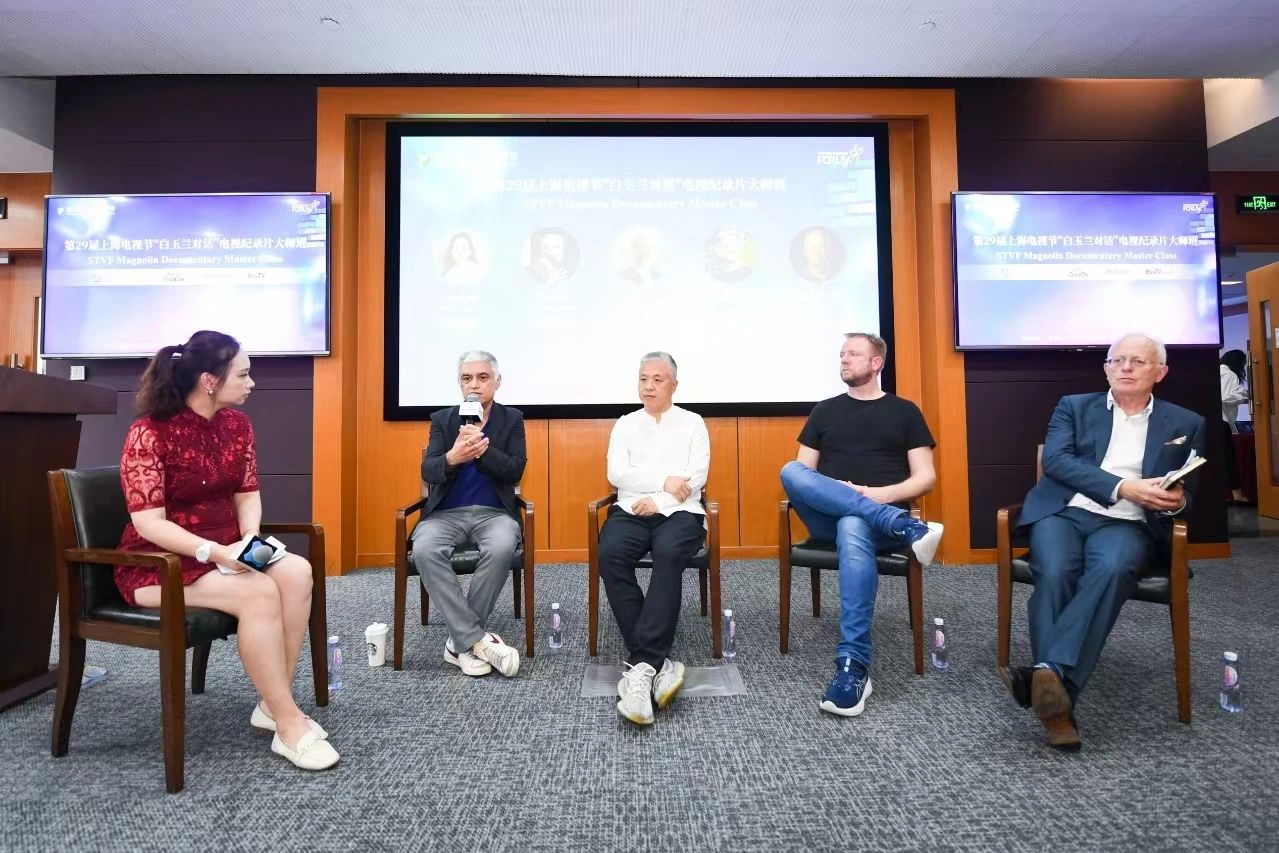
From left to right: moderator Chen Yinian, Vikram Channa, Xiao Han, Ton van Zantvoort, Michael Gunton.
Excellent documentaries feature authentic characters and emotions that resonate deeply with audiences of all ages
Three of the forum’s guests are jury members for the Magnolia Awards’ documentary category at this year’s STVF, which naturally leads one to wonder about their judging process and criteria. Vikram Channa emphasized that the jury members must adhere to specific regulations, with the primary criterion being the most critical standard of judgment at STVF; the second is whether the work handles and transforms difficulties and challenges well, with a perfect degree of success in completion, and whether the work is grounded and able to evoke empathy and sympathy from the audience; the third is the theme of the work, which should be relevant to the times, and be able to establish a dialogue no matter what the geographic context is, which can be intergenerational, or cross-cultural.
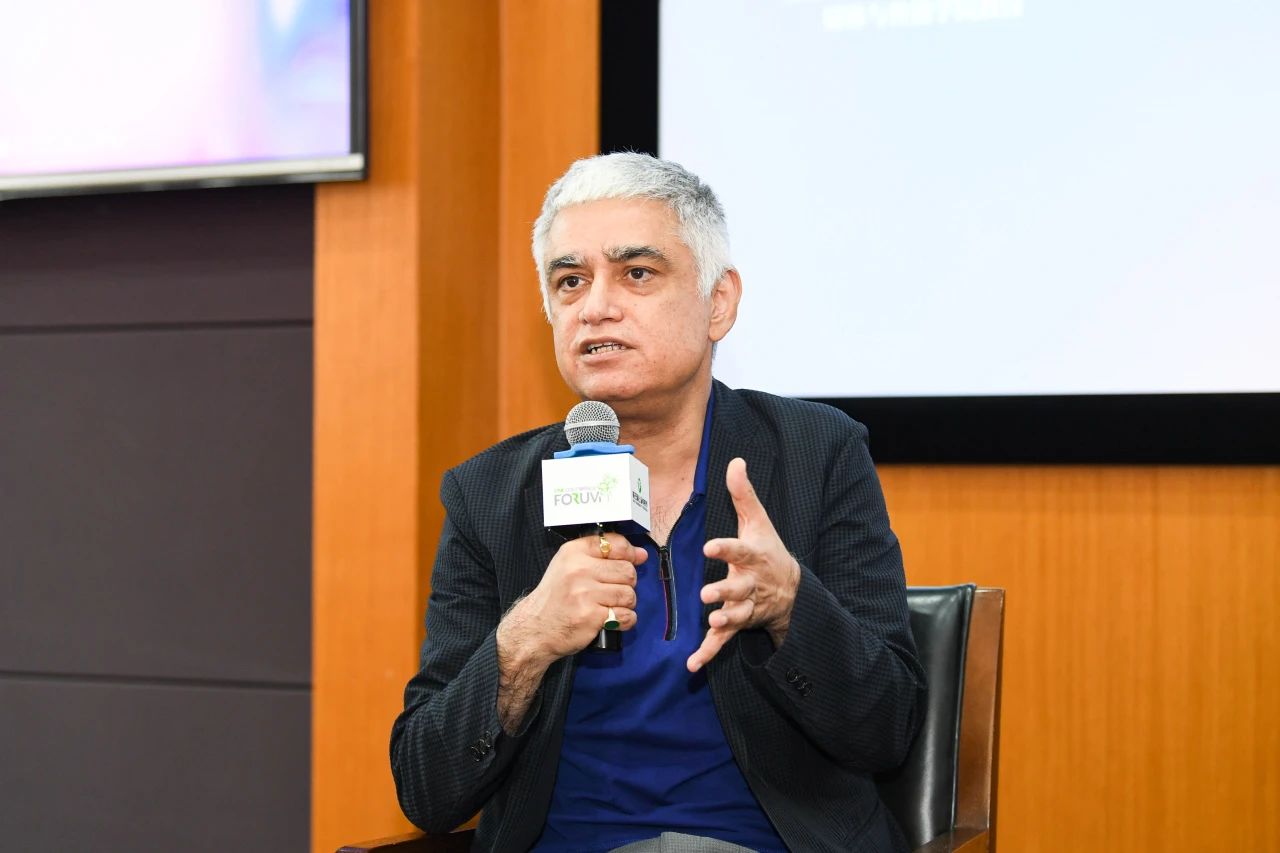
Chinese documentary director Xiao Han, known for MASTERS IN FORBIDDEN CITY, pointed out that the characters and stories in a work must first and foremost captivate the viewer and emotionally engage them.
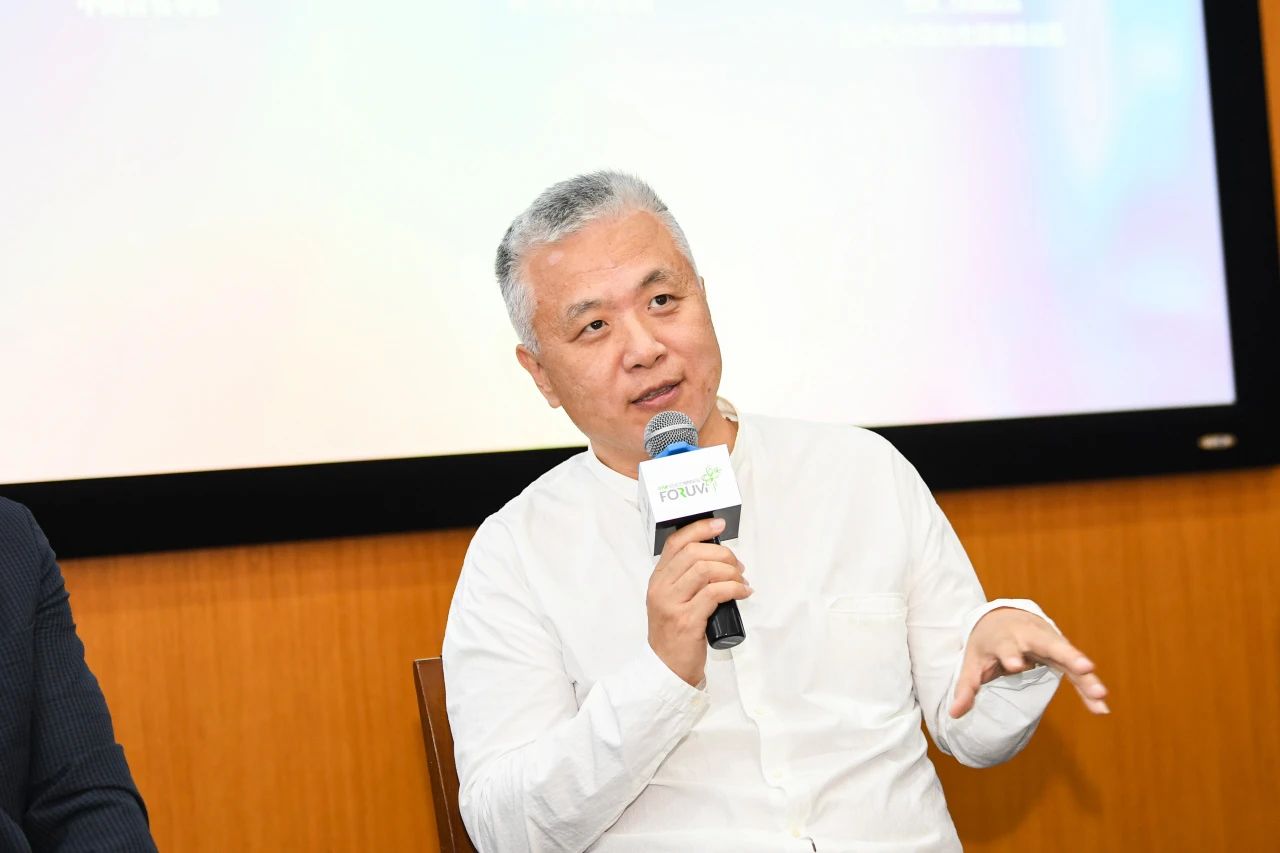
Ton van Zantvoort believes that outstanding documentaries must feature authentic subjects and moments, presenting a sense of being there that immerses the audience in thoughtful reflection long after viewing.

All three jury members acknowledged that due to their different backgrounds in growth and creation, personal styles and aesthetic preferences often lead to differences in judgment during the evaluation stage. Convincing each other during these discussions is a rare and valuable experience as jury members for the Magnolia Awards.
Michael Gunton, discussing BBC’s annual production PLANET EARTH III nominated in the documentary category, stated that the three jury members have common standards recognized by documentary workers: authenticity of the work, emotional connection with the audience, and the relevance of the work’s themes and content to society.
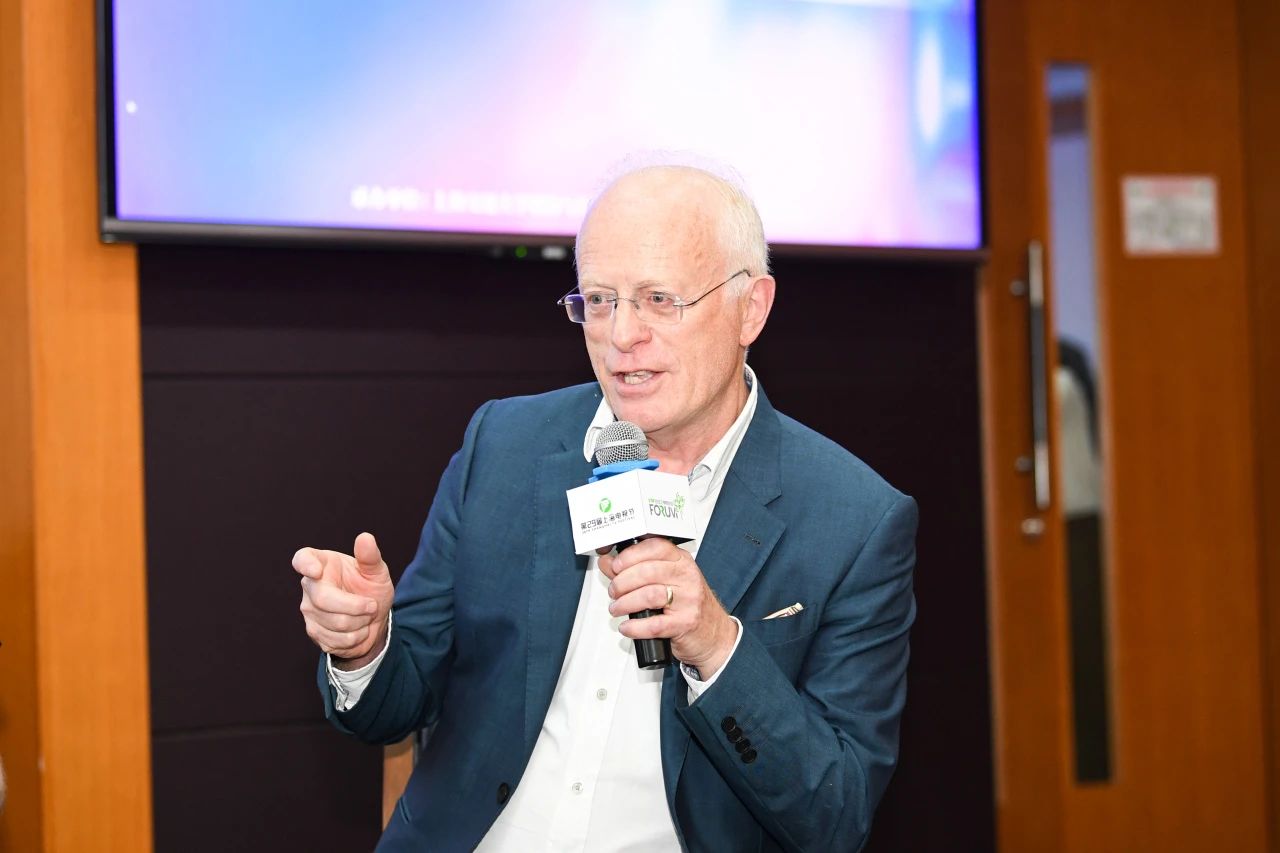
To present objective truths with
subjective narratives in documentaries
The ability of a documentary to captivate an audience lies in its inherent charisma. Therefore, when asked how to balance objective truth with creative individuality, Ton van Zantvoort bluntly stated that as a director, he can maintain a certain subjectivity in his documentaries. He added that if the audience seeks absolute truth, they should read books.
Vikram Channa explained that documentaries are non-fictional works. While they capture a lot of real material, they creatively process these materials with a subjective perspective. Otherwise, documentaries would merely be compilations of surveillance footage rather than artistic works. He emphasized that presenting facts in a sincere and comprehensive manner with a subjective touch is integral to the objectivity and integrity of documentaries.
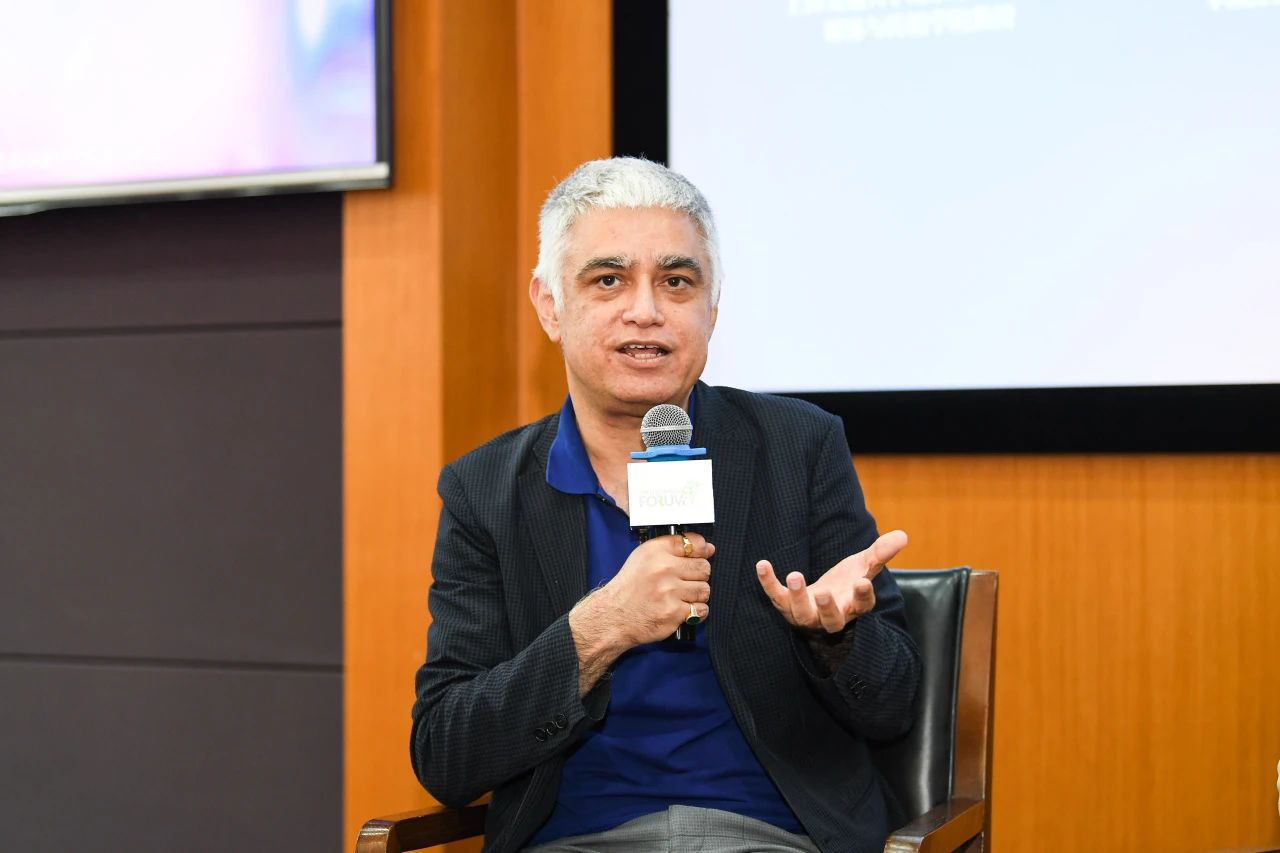
Vikram Channa added that documentaries maintain a line of objective facts, unlike novels and other fictional literary works. This distinction lies in the authenticity of documentaries versus the authenticity of literature. To attract more viewers and make specific statements, documentaries need to incorporate creative elements.
Michael Gunton said, without a doubt, documentaries still tell the truth, although we dare not say it is the only, absolute truth, but it is certainly the truth of objective facts. “We want to reveal a broader truth about society or a broader understanding from specific facts. Although we approach it with subjectivity, we also strive for honesty and truthfulness. This is our principle.”
Michael Gunton affirmed Vikram’s notion of “self-examination”, believing that true documentary workers often self-reflect on whether they are satisfied with the truth they tell. He noted that making documentaries can be mentally exhausting, not just because of the work itself, but also because it deeply affects the soul.
Compelling Chinese stories will resonate with
global audiences
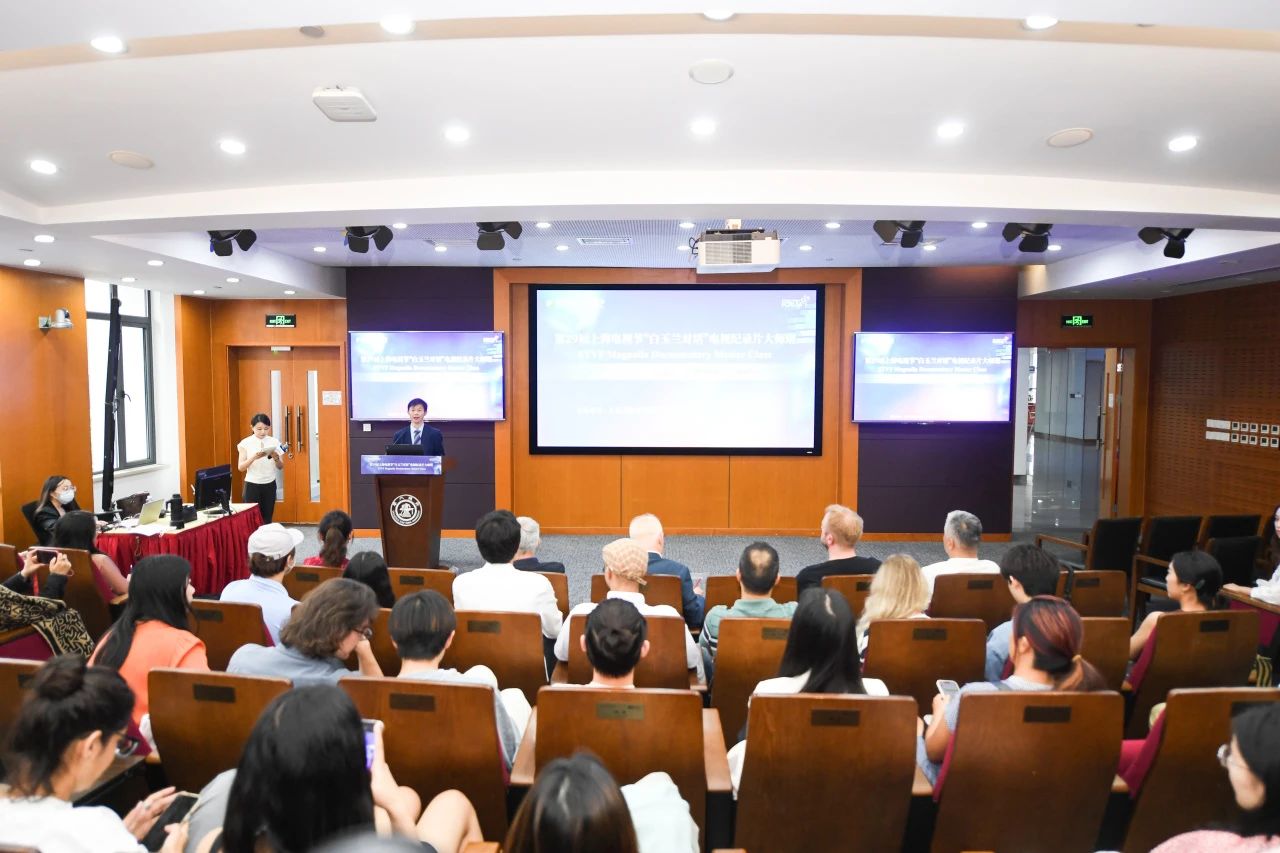
For a long time, the profession of cultural relic restorer was relatively unknown. However, after the broadcast of MASTERS IN FORBIDDEN CITY, the Palace Museum recruited over a dozen recent graduates in the field, with over 20,000 applicants. The documentary highlighted the dedicated work of relic restorers in an obscure profession, resonating strongly with international audiences. This demonstrates the significant role of high-quality documentaries in telling Chinese stories and promoting cultural dissemination.
Xiao Han emphasized that everyone has their own cultural background and a natural curiosity about others’ cultural backgrounds. Taking the restorers of cultural relics in the Forbidden City as an example, these seemingly ordinary individuals carry a cultural mission or unique skills and craftsmanship. Their stories can uniquely move people and resonate globally. Xiao Han noted, “I want to tell everyone that the documentaries I make must first captivate me. With such works, people 100 years later from now will realize that someone was doing this a century ago, living their life in this way. This is very interesting.”
Indian director Vikram Channa has worked on documentaries in China for over twenty years, collaborating closely with many Chinese documentary workers. From an aesthetic perspective, he believes that Chinese documentaries possess a strong literary expression capability. People are eager to express and record everything they see in different ways. Therefore, in China, the best films are often adaptations of literary works, closely tied to the historical tradition of “literature first”. In contrast, many myths in India are oral traditions, which is why many Bollywood films are primarily about singing and dancing. Therefore, as documentary creators aim to promote cultural dissemination, they should understand different cultural backgrounds and maintain cultural sensitivity.
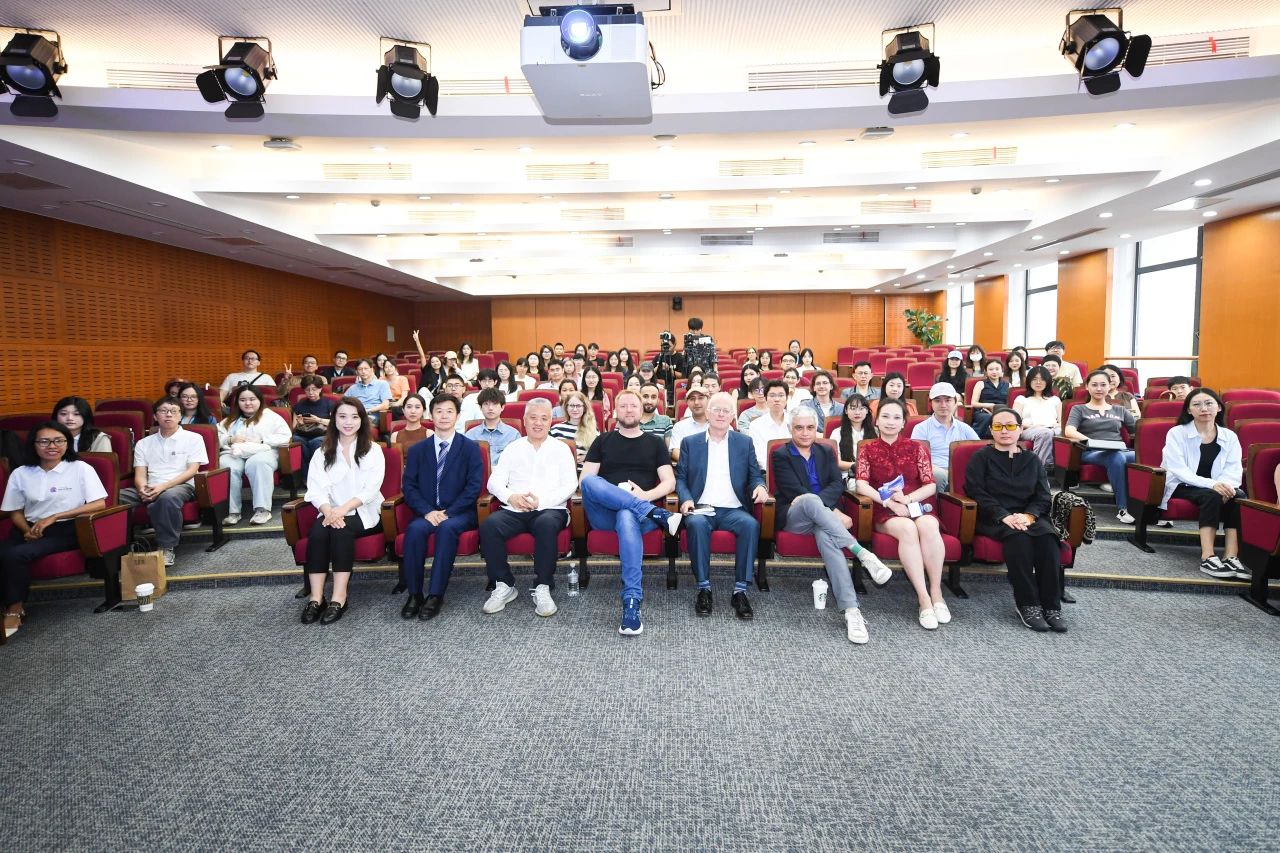

The 29th Shanghai Television Festival (STVF) is hosted by the National Radio and Television Administration, China Media Group, and the Shanghai Municipal People’s Government, and organized by Shanghai Municipal Administration of Radio and Television and Shanghai Media Group, with co-organization by the Administration Committee of Lin-gang Special Area of China (Shanghai) Pilot Free Trade Zone, and special support from Shanghai Lingang Special Area Investment Holding (Group) Co., Ltd.




